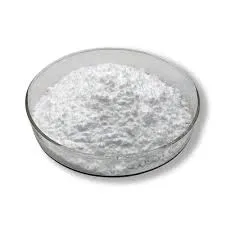
Dec . 05, 2024 16:55 Back to list
Applications and Benefits of Hydroxyethyl Cellulose in Various Industries
The Versatile Applications of Hydroxyethyl Cellulose
Hydroxyethyl cellulose (HEC) is a non-ionic, water-soluble polymer derived from cellulose, which is one of the most abundant natural biopolymers. Owing to its unique properties, HEC has garnered attention across a variety of industries, including pharmaceuticals, cosmetics, food, and construction. This article aims to explore the numerous uses of hydroxyethyl cellulose and its significance in various applications.
Pharmaceutical Industry
In the pharmaceutical realm, HEC serves multiple roles that are essential to the formulation and delivery of medications. One of its primary uses is as a thickening agent and stabilizer in liquid medications and suspensions. By altering viscosity, HEC ensures an even distribution of active ingredients, enhancing the stability and bioavailability of the drugs.
Additionally, HEC is utilized in the production of controlled-release formulations. Such formulations are crucial for maintaining therapeutic levels of a drug in the bloodstream over extended periods, thereby reducing the frequency of dosage and improving patient compliance. Its ability to form gels also aids in the creation of topical formulations, where it acts as a film-forming agent, enhancing the delivery of active compounds through the skin.
Cosmetic and Personal Care Products
The cosmetic industry widely incorporates hydroxyethyl cellulose for various applications. Its thickening properties make it an ideal addition to lotions, creams, shampoos, and gels. HEC improves the texture and feel of products, contributing to a smoother application and enhanced sensory experience.
In addition to thickening, HEC functions as an emulsifier, stabilizing oil-water mixtures in cosmetic formulations. This ensures that ingredients do not separate over time, providing stability and consistency. Furthermore, HEC’s film-forming characteristics are harnessed in products like hair styling gels and facial masks, where it creates a protective layer that can enhance the performance of the product.
Food Industry
hydroxyethyl cellulose uses

Hydroxyethyl cellulose has found its niche in the food sector as well. It is often used as a food additive, serving as a thickener, emulsifier, and stabilizing agent. HEC helps improve the texture and mouthfeel of various food products, including sauces, dressings, and dairy items.
One of its critical roles in the food industry is in fat replacers. HEC mimics the creamy texture of fats while providing a lower-calorie alternative, making it a popular choice in the formulation of low-fat and reduced-calorie products. Additionally, it holds water efficiently, helping maintain moisture levels in food, thus extending shelf life and preventing spoilage.
Construction and Building Materials
In the construction industry, hydroxyethyl cellulose is frequently utilized in building materials such as mortars, plasters, and adhesives. As a thickening agent, it helps increase the workability of cement and dry-mix products, allowing for better adhesion and performance during application. HEC enhances the spreadability and consistency of these materials, making them easier to work with and leading to more professional-looking results.
Moreover, HEC provides water retention properties, ensuring that the mixture remains workable for a longer duration. This is particularly important in construction, where the curing time and workability of materials significantly impact overall project efficiency.
Environmental Applications
With the rise of eco-friendly initiatives, hydroxyethyl cellulose is also being explored for its environmental applications. Its biodegradable nature makes it an attractive alternative to synthetic polymers in various applications. Research is underway to harness HEC in areas such as water treatment and soil stabilization, where it can help create more sustainable solutions.
Conclusion
In conclusion, hydroxyethyl cellulose is a multifaceted compound with a wide range of applications across various industries. Its properties as a thickening agent, emulsifier, stabilizer, and film-forming agent make it indispensable in pharmaceuticals, cosmetics, food products, construction, and even environmental applications. As research continues to unveil more of its potential, HEC is poised to play a significant role in developing innovative and sustainable solutions across different sectors. Its versatility not only meets consumer demands but also aligns with contemporary trends toward sustainability and safety, solidifying its place as a vital ingredient in an array of products.
-
Versatile Hpmc Uses in Different Industries
NewsJun.19,2025
-
Redispersible Powder's Role in Enhancing Durability of Construction Products
NewsJun.19,2025
-
Hydroxyethyl Cellulose Applications Driving Green Industrial Processes
NewsJun.19,2025
-
Exploring Different Redispersible Polymer Powder
NewsJun.19,2025
-
Choosing the Right Mortar Bonding Agent
NewsJun.19,2025
-
Applications and Significance of China Hpmc in Modern Industries
NewsJun.19,2025







